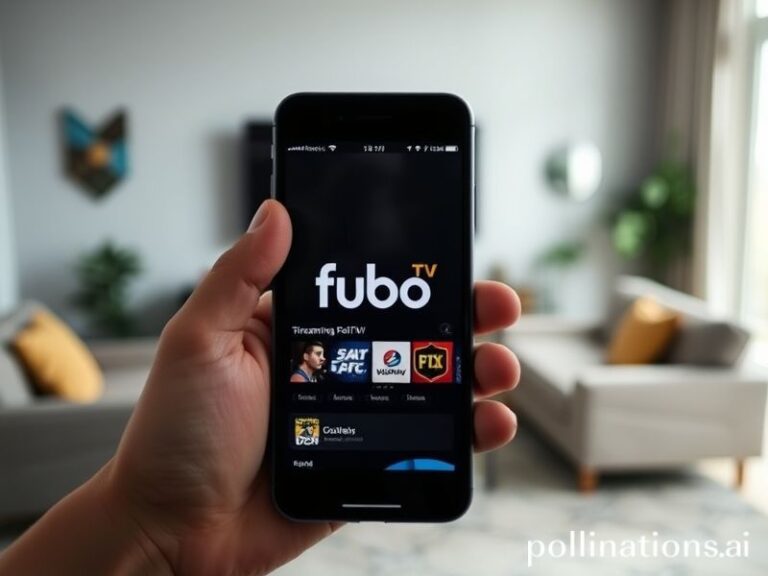Mookie Betts: America’s Last Reliable Export in a World on Fire
TOKYO—While the planet’s attention toggles between nuclear saber-rattling, algorithmic hallucinations, and whatever fresh outrage TikTok has monetized today, a 5-foot-9, 180-pound American in knee-high socks is quietly demonstrating that the most reliable export the United States still produces is thirty-something-year-old men who hit spheres with sticks. Mookie Betts—first name christened after a childhood nickname, surname sounding like a British euphemism for mild inconvenience—has become baseball’s most understated global ambassador, a role about as glamorous as being the EU’s lead negotiator on cabbage regulations.
Watch him in any ballpark from Boston to Busan (yes, the Korean feed carries Dodgers games at 3 a.m., because insomnia loves company) and you’ll see the same routine: a polite nod to the umpire, a swing that looks lazy until the ball rockets into orbit, and a jog so smooth it could be sponsored by Big Pharma’s best mood stabilizers. The statistics—six Gold Gloves, an MVP, three World Series rings before his 31st birthday—are the kind of numbers that translate into every currency, including the Venezuelan bolívar, where an entire season’s paycheck might still purchase a half-tank of gas.
Internationally, Betts matters for reasons baseball purists prefer to ignore. First, he is living proof that in an age of trade wars and semiconductor embargoes, the U.S. can still corner the market on effortless excellence, packaging it for broadcast in 214 countries where “shortstop” sounds like a culinary term. Second, he plays a sport that, unlike American football, requires no Kevlar armor and therefore appears quaintly civilized to cricket nations already nostalgic for empire. Third, and most cruelly amusing, Betts earns $30 million a year to entertain a country that can’t collectively decide whether baseball is dying or merely napping through another analytics-induced coma.
Overseas audiences interpret his dominance differently. In Japan, they see a shorter, faster Shohei Ohtani without the marketing halo—proof that utility, not circus tricks, sustains greatness. In the Dominican Republic, they nod at his easy charisma and whisper, “If only we’d signed him at 16,” the way one regrets overlooking a crypto tip in 2011. In the UK, where rounders on steroids still baffles the average punter, Betts functions as a surreal highlight between Premier League matches, a human screensaver for pubs that close before first pitch.
The darker joke, of course, is that while Betts patrols right field with operatic grace, the real world’s outfield walls keep moving in. Climate refugees can’t hop a fence into Chavez Ravine for a $15 hot dog. Supply-chain gridlock doesn’t stop for a pitching change. And the same streaming services beaming Dodgers games into Taiwanese living rooms are also feeding Beijing’s algorithmic propaganda—every Betts home run followed by an ad for a dating app, then a state-media bulletin on “harmony.” Bread, circuses, repeat.
Yet the man himself remains stubbornly apolitical, the closest he gets to rebellion being a refusal to spike his trademark grin below replacement-level positivity. Ask him about voter suppression or oceans on fire and he’ll pivot faster than a hungover undergrad: “I just try to help the team win.” It’s the kind of line that makes international observers roll their eyes so hard the ISS files a turbulence report, but it also explains his durability. In an era when athletes moonlight as brand activists, Betts is retro: a corporation of one, monetizing joy without the messy liability of opinions.
What does it mean for the globe? Nothing, which is precisely the comfort. While central banks play Jenga with your savings and ransomware gangs target hospitals, Betts flips a double play, tips his cap, and reminds us that some crises—like a hanging curve—can still be solved with exquisite timing and a piece of maple. The world will keep burning, but for three hours a night, a man named Mookie runs faster than our collective anxiety, and for reasons no GDP chart can capture, that feels like a small, ridiculous mercy.







